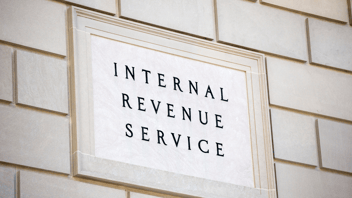
Providing your employees with a bonus is a great way to reward them for their hard work and dedication. Bonuses may help with both employee satisfaction and retention. They are a great way to share your enthusiasm and gratitude with your team.
If your business offers a bonus, your employees may have some questions like, “how are bonuses taxed?” It’s important that you can provide that information to them to avoid confusion and frustration.
In Tennessee, there is no income tax, which opens the door to even more questions about taxation on income.
Hiring a dedicated small business CPA can help you prepare to answer these questions. In the meantime, here’s an overview of the information you’ll need to provide to your employees when you give them a bonus.
 HOW DO YOU CALCULATE EMPLOYEE BONUS TAXES?
HOW DO YOU CALCULATE EMPLOYEE BONUS TAXES?
Bonuses are subject to income taxes on a federal level.
That said, they are not treated as regular wages by the IRS. Instead, they are classified as supplemental wages. This category also includes income such as commission or severance pay. As an employer, you have two options for calculating taxes on employee bonuses. Taxes are calculated either by percentage or aggregate.
Related: How Much Do You Make After Taxes?
CALCULATING BY PERCENTAGE
The amount the employer withholds is dependent upon the value of the bonus. If the bonus you’re offering to your employee is $1,000,000 or less, you will need to withhold 22% of that total.
Let’s say you give your employees a $5,000 bonus. You’ll withhold 22% of the bonus for federal income taxes, which is $1,100, plus relevant social security and medicare withholding. Your employee will see net amounts added to the paycheck.
The calculation changes if an employee receives a bonus over $1,000,000. In that case, 22% is withheld from the first million. After that, 37% is withheld on everything over the $1 million amount. Bonuses over $1 million must be taxed using the percentage method.
CALCULATING BY THE AGGREGATE METHOD
The aggregate method tends to provide better accuracy for tax payments.
This means that employees have a lesser chance of a surprise tax bill at the end of the year due to bonus income.
When you as an employer use this method, the employee’s bonuses are combined with their regular salary and taxed at the same rate.
In these cases, an employee who makes over $41,775 and less than $89,075 is taxed at 22% for regular salary and bonuses.
DOES TENNESSEE TAX EMPLOYEE BONUSES?
Tennessee is one of nine states that does not collect general income tax. Workers in Tennessee have to pay their federal income taxes like everyone else, but they do not pay income taxes to the state.
The good news is that this applies to employee bonuses, too! Employers do not need to withhold funds from their employees’ bonus paychecks in order to pay state income taxes.
Related: What's The Difference Between Tax Avoidance and Tax Evasion?
NEED HELP WITH YOUR SMALL BUSINESS’S TAX PROCESSES? CHALIFF + ASSOCIATES CAN HELP
Bookkeeping, payroll, bonuses, and tax preparation take a lot of time.
Many small business owners end up overwhelmed by the bookkeeping and accounting tasks associated with running their company. It doesn’t have to be that way!
Hiring a CPA to help with your business can make a huge difference in your workload.
Chaliff + Associates has a team of experienced CPAs who are ready to alleviate the stress and frustration that accompanies the work of payroll, accounting, tax preparation, and bookkeeping. If you need help with these services in Memphis and the surrounding areas, reach out today to request a free consultation with one of our expert accountants!





